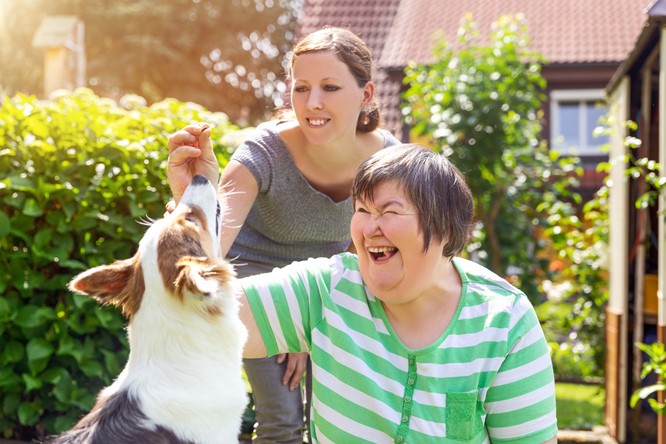
The benefits of owning a pet
Posted on: 9/07/2023It is estimated that over as 16 million UK households have pets, according to the RSPCA. Pets bring a lot of joy to their owners, but research has found that pets also have a beneficial effect on our health and wellbeing.
1. Pets keep your body healthy
All dogs, no matter their breed or size, need regular exercise as part of their daily routines, which in turn, helps their owners get out and about. Studies have shown that dog owners are far more likely to meet their daily exercise requirements.
2. Pets are good for our mental health
Pets can help alleviate stress, anxiety, depression and feelings of loneliness and social isolation.
Studies have found that:
- Pet owners are less likely to suffer from depression than those without pets
- People with pets have lower blood pressure in stressful situations than those without pets. One study even found that people with borderline hypertension who adopted dogs from a shelter, decreased their blood pressure significantly within five months
- Playing with a dog or cat can elevate levels of serotonin and dopamine, which calm and relax us
A pet doesn’t necessarily have to be a dog or a cat. Even watching fish swim around in a fish tank can help reduce muscle tension and lower pulse rate.
3. Some pets can provide guidance and support to their owners
Over 7,000 disabled people in the UK rely on accredited assistance dogs to help with practical tasks, including opening and closing doors, loading and unloading the washing machine, and pressing buttons and switches.
There are different kinds of assistance dogs who can assist people with various conditions. Arguably, guide dogs are the most well-known of all assistance dogs but there are other types too.
Other assistance dogs include hearing dogs, who are trained to alert the hard of hearing to sounds they would otherwise miss, and seizure alert dogs. Seizure alert dogs are trained to provide a reliable warning up to 50 minutes prior to an oncoming seizure. This can help sufferers live more independently, safe in the knowledge that they will be alerted in advance of a seizure.
4. They can provide companionship to people with learning difficulties
Animals can be wonderful companions for disabled children and adults, but they can do so much more too, such as helping with physical and emotional development.


Stroking or brushing an animal can help children with issues like cerebral palsy to develop their fine motor skills in a similar way to physiotherapy activities. Additionally, children with gross motor issues can benefit from the regular exercise of walking a dog.
5. Pets give older owners a sense of purpose
As you age, you’ll lose things that previously occupied your time and gave your life purpose. You may retire from your career or your children may move away. Caring for a pet can bring pleasure and help boost your morale, optimism, and sense of self-worth. Owning a pet, especially a dog, requires owners to establish a routine, and having structure to the day helps older people.
Do you have a pet that helps or comforts you? Why not share a photo of them with us on our Facebook page and tell us a little about them www.facebook.com/ProgressLifeline/